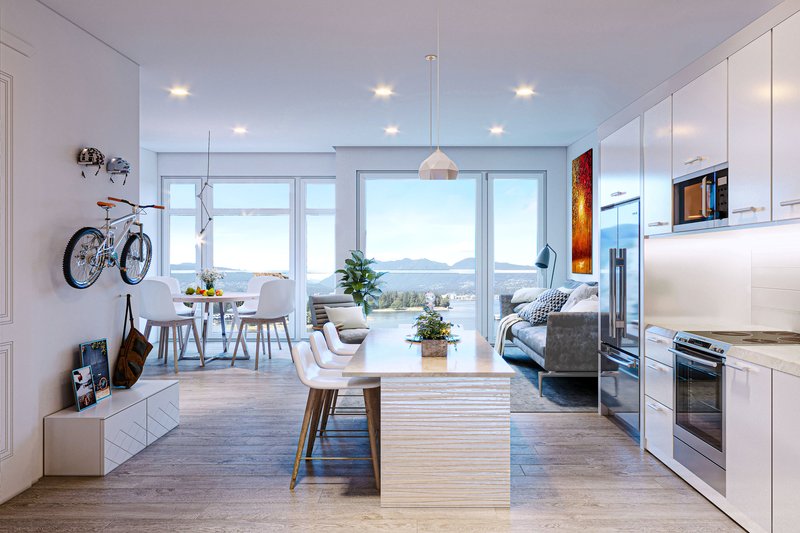Attracting Clients and Showcasing Designs: The Role of 3D Rendering in Interior Design Marketing
The interior design business is not only about creativity and style but also about effective marketing. One challenge of marketing in this field is communicating a design concept to potential clients. Traditional methods, such as 2D sketches or mood boards, may not fully capture the essence of a design, and this is where 3D rendering comes into play. By creating realistic, immersive, and interactive representations of interior spaces, 3D rendering has become an invaluable tool in the marketing toolkit of interior designers.
The Power of Visualization in Interior Design Marketing
Before diving into how 3D rendering aids in marketing, it's important to understand the power of visualization. Humans are highly visual creatures. Our brains are wired to process and understand visual information more efficiently than text. In interior design, the ability to visualize a space influences decision-making. A well-executed visual representation can inspire, evoke emotions, and help potential clients see the value of a designer's work.
Marketing Challenges in Interior Design
Interior designers often face several marketing challenges. Some of these include showing value to potential clients, distinguishing their services from competitors, and communicating complex design concepts clearly and convincingly. Given the highly visual nature of interior design, traditional marketing methods such as brochures, pamphlets, and even 2D designs often fall short. They cannot provide potential clients with a realistic feel of the space, let alone allow them to experience the design.
The Role of 3D Rendering in Overcoming Marketing Challenges

3D rendering has emerged as a solution to these marketing challenges. Here's how it aids in interior design marketing:
Creating Immersive Design Visualizations
3D rendering allows for the creation of highly detailed, realistic, and immersive visualizations of interior spaces. It enables potential clients to virtually 'walk' through the design and experience the space as it would look upon completion. This gives clients a clear understanding of the design, its functionality, and aesthetics, enhancing their confidence in the designer's capabilities and the proposed design.
Differentiating Services
In a highly competitive industry, distinguishing one's services from others is vital. With 3D rendering, designers can showcase their unique design style, attention to detail, and technical expertise, thus setting themselves apart from their competitors. A portfolio enriched with high-quality 3D renderings can be a powerful tool to attract and impress potential clients.
Facilitating Effective Client Communication
Communicating design concepts to clients, particularly those without a background in design or architecture, can be challenging. 3D renderings can bridge this communication gap. They allow clients to visualize the design realistically and tangibly, enabling more productive conversations about design preferences, alterations, and final decisions.
Digital and Social Media Marketing
3D renderings are ideal for digital and social media marketing. They can create engaging content for websites, blogs, email campaigns, and social media platforms. 3D animations, virtual tours, and interactive visualizations can generate significant online engagement, increasing visibility and attracting potential clients.
The Future of 3D Rendering in Interior Design Marketing
As technology evolves, the role of 3D rendering in interior design marketing will become even more significant. With advancements in virtual reality (VR) and augmented reality (AR), clients will explore and interact with 3D renderings in a fully immersive environment. This could revolutionize how designers present their work, making the client part of the design experience and enhancing their connection with the design.
Conclusion
In conclusion, 3D rendering plays a critical role in interior design marketing. It allows for the creation of realistic, immersive, and engaging visual representations that can attract clients, showcase designs, and differentiate services. As technology continues to evolve, interior design marketing will be redefined, making it more interactive and immersive. By embracing 3D rendering, interior designers can enhance their marketing efforts and elevate the overall client experience.
Our Services
View some of our most popular services below.











